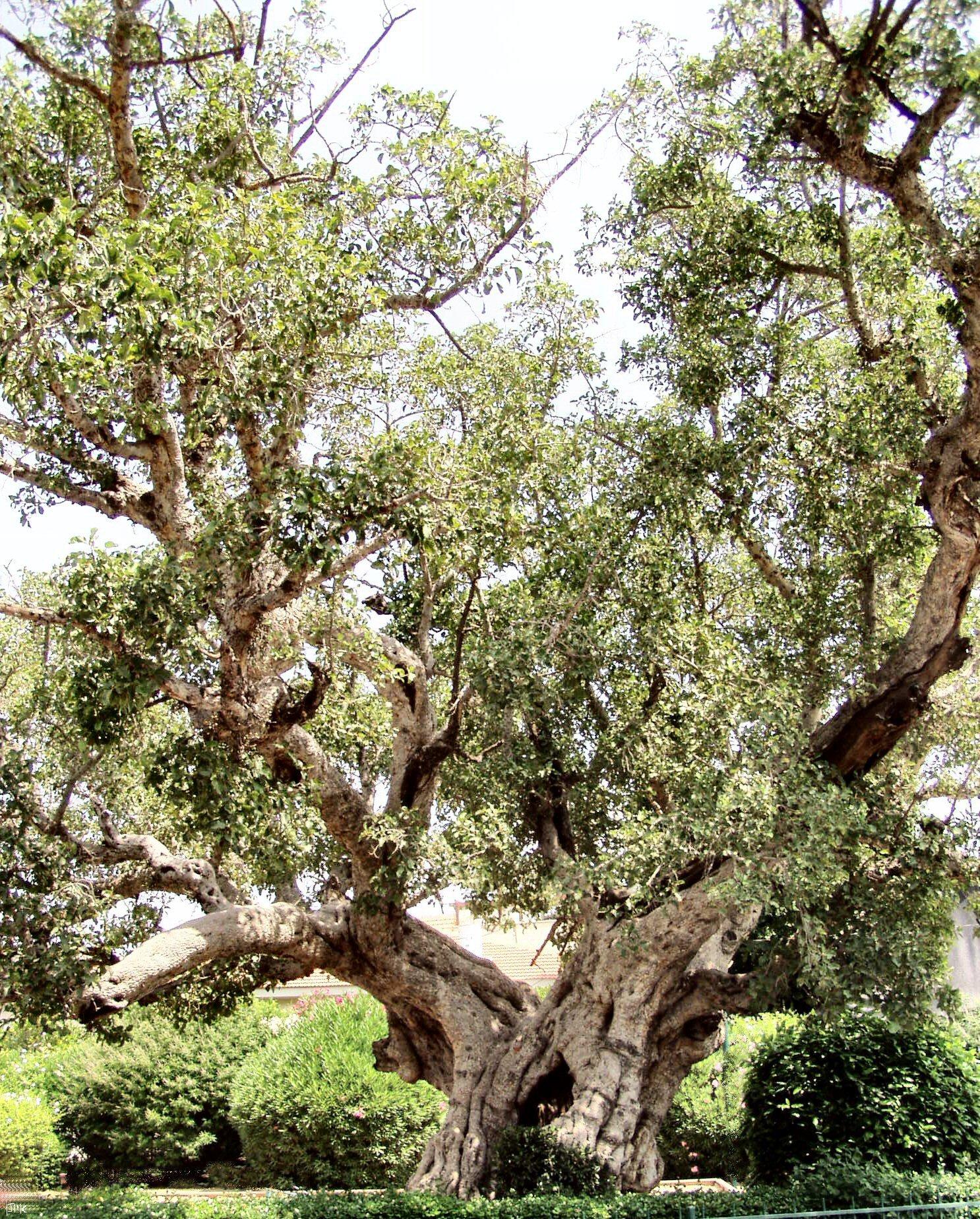Sycamine on:
[Wikipedia]
[Google]
[Amazon]
 The sycamine tree ( ''sykaminοs'') is a tree mentioned in both classical
The sycamine tree ( ''sykaminοs'') is a tree mentioned in both classical
 The sycamine tree ( ''sykaminοs'') is a tree mentioned in both classical
The sycamine tree ( ''sykaminοs'') is a tree mentioned in both classical Hebrew literature
Hebrew literature consists of ancient, medieval, and modern writings in the Hebrew language. It is one of the primary forms of Jewish literature, though there have been cases of literature written in Hebrew by non-Jews. Hebrew literature was pr ...
(Isaiah
Isaiah ( or ; he, , ''Yəšaʿyāhū'', "God is Salvation"), also known as Isaias, was the 8th-century BC Israelite prophet after whom the Book of Isaiah is named.
Within the text of the Book of Isaiah, Isaiah himself is referred to as "th ...
9:10; Mishnah
The Mishnah or the Mishna (; he, מִשְׁנָה, "study by repetition", from the verb ''shanah'' , or "to study and review", also "secondary") is the first major written collection of the Jewish oral traditions which is known as the Oral Tora ...
''Demai
Demai (Mishnaic Hebrew: ) is a Halakhic term meaning "doubtful". The ''demai'' status applies to agricultural produce acquired from common people ( am ha'aretz) who are suspected of not correctly separating tithes according to Jewish law. As a ...
'' 1:1, ''et al.'') and in Greek literature. The tree is also known by the names sycamore fig tree (''Ficus sycomorus
''Ficus sycomorus'', called the sycamore fig or the fig-mulberry (because the leaves resemble those of the mulberry), sycamore, or sycomore, is a fig species that has been cultivated since ancient times.
The term ''sycamore'' spelled with an ...
''), and fig-mulberry. It appears also in Luke 17:6 and 19:4 of the Bible
The Bible (from Koine Greek , , 'the books') is a collection of religious texts or scriptures that are held to be sacred in Christianity, Judaism, Samaritanism, and many other religions. The Bible is an anthologya compilation of texts o ...
. The Hebrew word for the tree is ''shiḳmah'' (sing.) (), ''shiḳmīn'' (pl.) (), having nearly the same phonemes in Greek ( ''sykomorea'') Others, however, identify the tree as mulberry tree, found in two species, the Black Mulberry
''Morus nigra'', called black mulberry or blackberry (not to be confused with the blackberries that are various species of ''Rubus''), is a species of flowering plant in the family Moraceae that is native to southwestern Asia and the Iberian Pen ...
(''Morus nigra'') and the White Mulberry
''Morus alba'', known as white mulberry, common mulberry and silkworm mulberry, is a fast-growing, small to medium-sized mulberry tree which grows to tall. It is generally a short-lived tree with a lifespan comparable to that of humans, althoug ...
(''Morus alba''), which are common in Palestine. It is in the same family
Family (from la, familia) is a group of people related either by consanguinity (by recognized birth) or affinity (by marriage or other relationship). The purpose of the family is to maintain the well-being of its members and of society. Idea ...
as the fig-tree.
The bricks are fallen, but we will build with hewn stones; the sycamores are cut down, but cedars will we put in their place.The trees were once very common along the lowlands and coastal plains of
Israel
Israel (; he, יִשְׂרָאֵל, ; ar, إِسْرَائِيل, ), officially the State of Israel ( he, מְדִינַת יִשְׂרָאֵל, label=none, translit=Medīnat Yīsrāʾēl; ), is a country in Western Asia. It is situated ...
. During the Second Temple
The Second Temple (, , ), later known as Herod's Temple, was the reconstructed Temple in Jerusalem between and 70 CE. It replaced Solomon's Temple, which had been built at the same location in the United Kingdom of Israel before being inherite ...
period, sycamore fig trees grew in Jericho, but when passers-by would come along and appropriate the tree branches unto themselves, the owners came and dedicated the trees, in their entirety, to the Temple treasury as a dedicatory offering in order to prevent their theft.
The sycamine is a deciduous
In the fields of horticulture and Botany, the term ''deciduous'' () means "falling off at maturity" and "tending to fall off", in reference to trees and shrubs that seasonally shed leaves, usually in the autumn; to the shedding of petals, a ...
to semi-deciduous tree and sheds its fruit in a prolific manner, by reason of which the Sages of Israel prohibited a Jewish planter from planting such trees within the radius of 50 cubits from his neighbor's cistern
A cistern (Middle English ', from Latin ', from ', "box", from Greek ', "basket") is a waterproof receptacle for holding liquids, usually water. Cisterns are often built to catch and store rainwater. Cisterns are distinguished from wells by ...
.
All sycamines that currently grow in the Land of Israel (''Ficus sycomorus'') are believed to be invasive species, but which are now cultivated in Israel. The tree is native to East Africa
East Africa, Eastern Africa, or East of Africa, is the eastern subregion of the African continent. In the United Nations Statistics Division scheme of geographic regions, 10-11-(16*) territories make up Eastern Africa:
Due to the histori ...
. It is thought that the species was once endemic to the Land of Israel. Another species of sycamine endemic to the Horn of Africa, Ethiopia and Yemen is ''Ficus vasta
''Ficus vasta'' ( am, ዋርካ; warka) is a fig plant found in Ethiopia and Yemen. The tree is a species of sycamore-fig.
Description
''Ficus vasta'' is a large tree, with a massive trunk, and spreading branches whose tips form an inverted bowl ...
''., citing J.R.I. Wood (1997), ''A Handbook of the Yemen Flora'', Aylesbury, UK
Notes
References
{{eastons, wstitle=Sycamine tree Trees Plants in the Bible Flora of Israel Flora of Palestine (region) Fruit trees New Testament words and phrases Edible fruits Ficus Plant common names